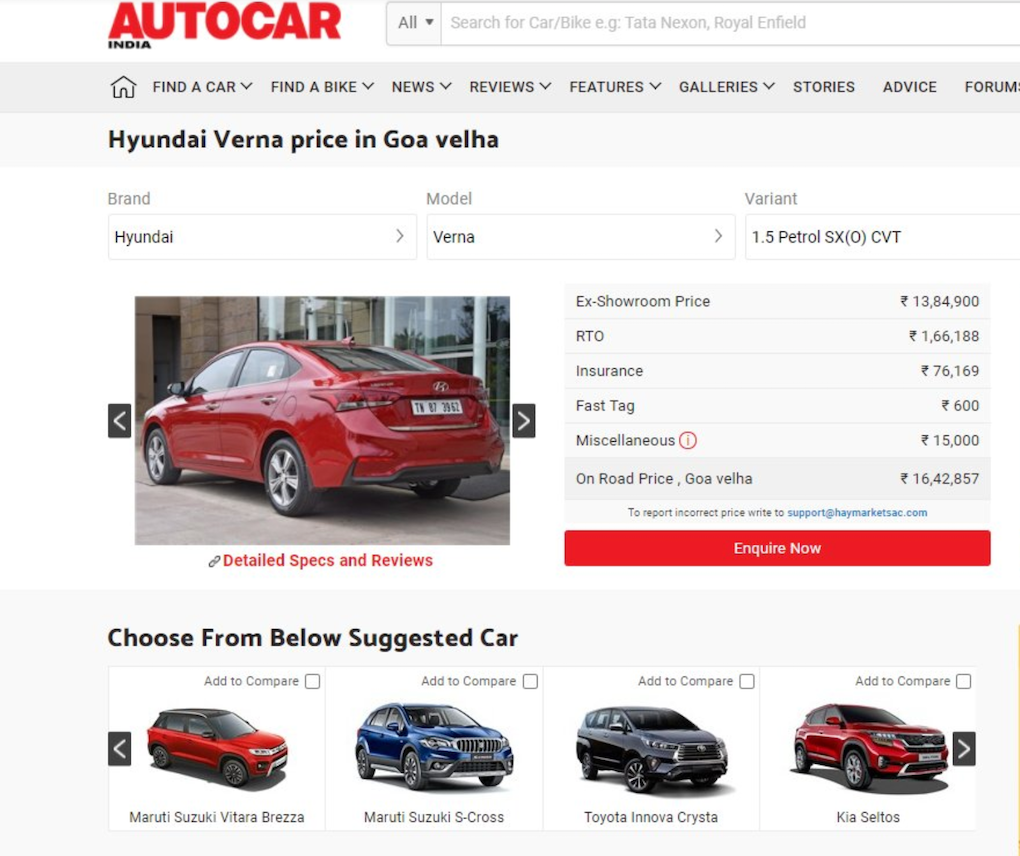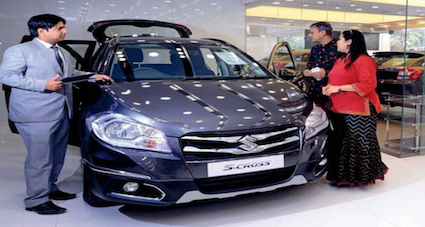A few weeks ago, we transferred a used car to my name, and the process went as sweet as jam. The “No Objection Certificate” from the origin RTO of the seller was obtained online, and I made just two visits to the RTO under which my address fell, to complete the transfer and receive a fresh Registration Certificate. Whatever I had to pay for the transfer and new Registration Smart Card, a total of Rs. 430/- (four hundred and thirty) Rupees was paid by cashless means at the counter of the RTO, and I did not have to spend a paisa more, over or under the table.
I then purchased a new Insurance Policy for the car online, initially 3rd Party whilst waiting for the Registration Certificate, which is now being converted to Comprehensive by the Insurance Company after I have sent them a copy of the new Registration Certificate. I can see the Insurance Policy number already uploaded next to my car’s documents online at the MoRTH eVahan website, as also the PUC, and all other details. The subject car is now, hopefully, completely street legal in every way possible.
However, in the fine print at various points, including in the insurance policy, is a simple statement – it is essential for the subject motor vehicle to have a valid FasTag. This is also a condition for Registration and compliance has to be done by the owner. So off I went to purchase a FasTag. As things stand, the State I live in now does not have a single NHAI Toll Booth inside its limits, the new car dealers asked for anything between 600 and 800 rupees, and so I asked around and was told – get it issued by your bank. I thus went online, filled up the easy form, enclosed a soft copy of the Registration Certificate of the car (the bank has already got everything else about me in their records) – and a couple of days later, received a FasTag by courier delivered home – totally free of charge.
But it gets a bit complicated when you purchase a new motor vehicle. This Right to Information Application that I filed may help explain matters –
“”When I buy a new car, I am unable to procure a FastAg which is otherwise provided free, unless I have a registration number and a Registration Certificate. Without a Registration Certificate, I can not get a FastAg. And without a FastAg, I can not get a Registration Certificate. However, new car dealers are able to procure FastAg for customers and then levy a charge ranging from 600 to 800 rupees with active knowledge of manufacturers. Please provide me with precise information on how new car dealers are able to do this and under which laws of India. Many thanks.””
Interestingly enough, this charge of 600 to 800 rupees appears to have become almost legit, even the automobile magazines quote it now (see image below). This is just a sample page from one of India’s many motoring media publications. What I was informed was that even the Government vehicles that are purchased, end up paying this amount, which is interesting when the FasTag is provided free by the same Government!

Despite COVID-19, 2.9 million motor vehicles of all sorts were sold in India in 2020, which means, at a modest estimate, that about 200 crores of revenue went adrift somewhere. (I would not have minded paying 600 to 800 rupees for a FasTag if the money was going to the Government.)
When I put this up to India’s leading almost monopoly automobile manufacturer, for a car I had booked and was waiting for, they did what was their idea of a solution – they cancelled my booking. Fair enough. In any case, stories going around on how pretty much any and every kind of chips are being used lately, spooked me from buying a new car.
(Incidentally, this amount is collected without levying GST, because that would really upset the apple cart, right?)
Veeresh Malik was a seafarer. And a lot more besides. A decade in facial biometrics, which took him into the world of finance, gaming, preventive defence and money laundering before the subliminal mind management technology blew his brains out. His romance with the media endures since 1994, duly responded by Outlook, among others.
A survivor of two brain-strokes, triggered by a ship explosion in the 70s, Veeresh moved beyond fear decades ago.


